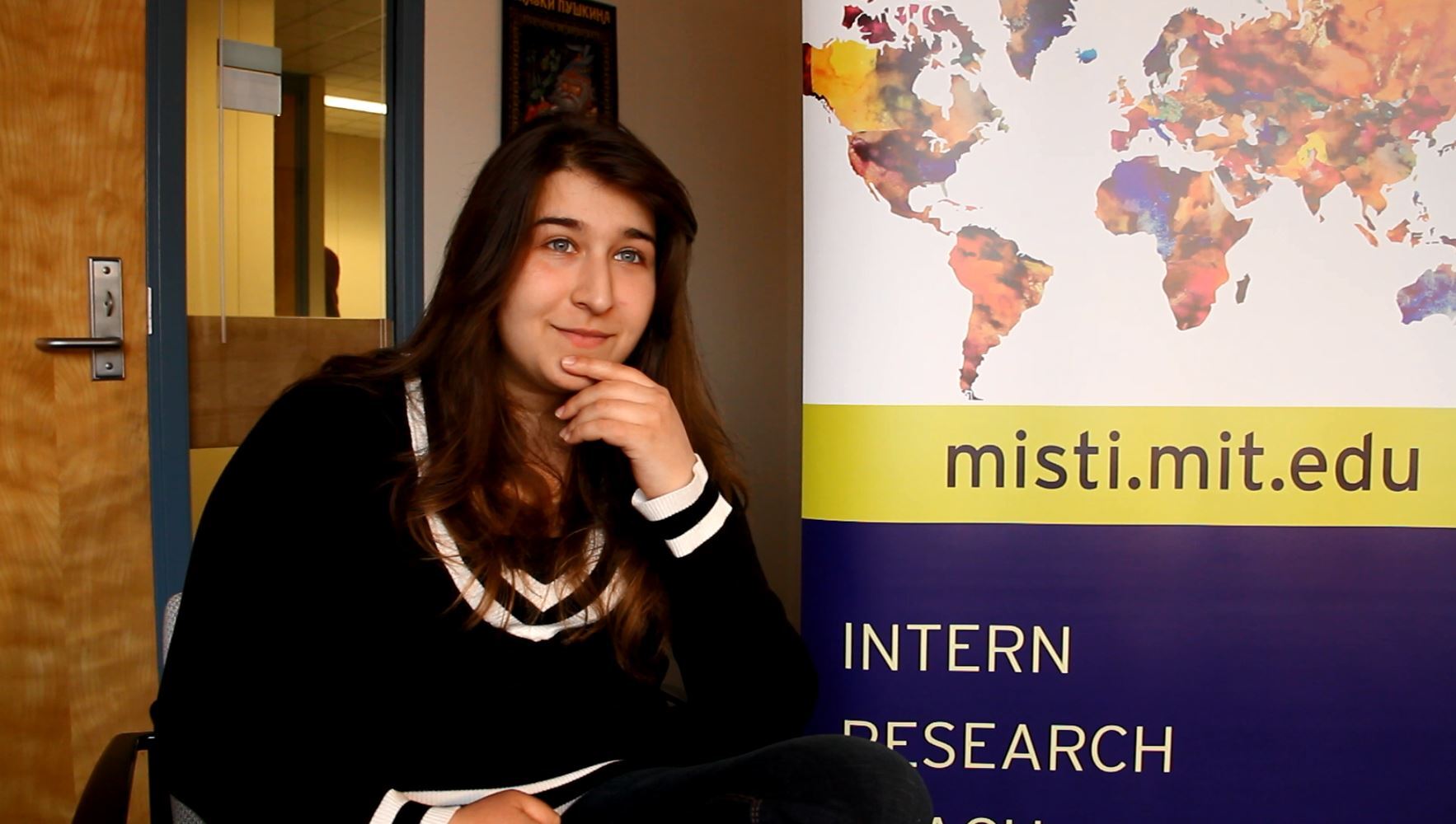- November 15, 2021
MISTI Russia alumna explains how U.S.-Russia crisis and competition gives way to creativity and technological advancement.
“How would I describe Russia in three words? Russia is historic, conservative, and welcoming,” says Rebecca Kekelishvili, Electrical Engineering and Computer Science ’16 and MISTI Russia alumna.
Kekelishvili did her internship with General Electric in Moscow. As a digital energy intern, she performed SQL queries to create object hierarchies for the electrical grid. She also created training materials on the PowerOn Fusion System and the Energy Industry in Russia.
Being a Russian heritage student, Kekelishvili adapted to the new work environment quickly; however, some things weren’t easy to get used to. “For example, working with Russian management is very different from working with American management. In Russia, hierarchy is respected a lot more than in the U.S.,” she says.
Kekelishvili argues that there are several reasons why an MIT student should consider going to Russia. “First is obvious. It’s a new culture; it’s a country that many haven’t been to. It’s a great travel experience. The MISTI Program gives you this special treat which you shouldn’t say ‘no’ to.”
“On a more serious note, Russia and the U.S. have often been on opposite sides of the political arena. They keep fighting for spheres of political influence today. But you can’t deny that these two countries have influenced each other to a great extent. Starting from the Cold War, the reason so many science projects in the U.S. got funded is because of this competition with Russia.”
The same is true for Russia. Seeing the U.S. as a threat, Moscow invested heavily in Russia’s technological and military development. This competition fostered creativity on both sides, says Kekelishvili. Today Russia, though shaken by the tumultuous 1990s, maintains a very strong tradition in science and math. In 2015, Bloomberg ranked Russia 14th in its Global Innovation Index.
“MIT students should know why their research has been funded through certain channels, and one of the reasons is the Cold War; one of the reasons is Russia. There is value in going abroad and seeing the culture that has influenced the U.S. to such an extent,” argues Kekelishvili.
Value of MIT students
At the same time, Kekelishvili is certain that MIT students bring significant value to their host companies and universities in Russia.
“MIT students don’t learn the same things that Russian students would,” she states. In Russia, education is still much more theoretical and students are not necessarily as technically skilled as their peers from MIT.
“So, the first thing they [Russians] will be surprised [by] is that you are technically savvy and that you’ve done so much. Second, the type of engineering that you learn in Russia and in America is very different.”
In Russia, the focus is on training in heavy industries, while in the U.S. students get a lot of training in consumer goods related fields. Therefore, MIT students bring skills that Russian students are not likely to have. “As an MIT student, you’ll be really contributing,” she adds.
